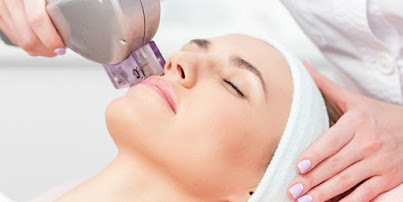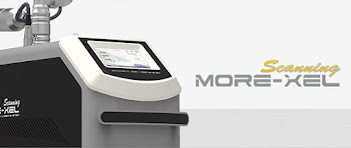
CO2 facial laser resurfacing is a popular procedure used to rejuvenate and renew the skin thereby addressing various skin concerns. This advanced treatment utilises targeted beams of light to remove the superficial layer of the skin, leading to remarkable improvements in skin texture, tone, and overall appearance. In this comprehensive guide, we will delve into the details of CO2 laser resurfacing, exploring its tremendous benefits, procedure, protocols , recovery process, safety considerations and cost of the treatment itself.
Introduction to CO2 Laser Resurfacing
CO2 laser resurfacing, also known as carbon dioxide laser resurfacing is a highly effective cosmetic
procedure that targets a range of skin imperfections. It is widely used to reduce the appearance of fine lines, wrinkles, acne scars, sunspots and age spots. This treatment utilizes the power of focused laser beams to precisely remove the top layer of the skin, stimulating collagen production
and promoting the growth of new, healthier skin cells at the skin surface.
How Does CO2 Laser Resurfacing Work?
CO2 laser resurfacing works by delivering pulses of laser light at a wavelength of 10600 nm that penetrates the skin’s surface. The water present in the skin cells absorbs these beams, resulting in
the vaporisation of the epidermis, the outermost layer of the skin. This controlled injury triggers a healing response in the body, stimulating the production of new collagen fibers in the dermis, the middle layer of the skin. Over time, as the treated area heals, the old layers of skin are replaced with smoother, firmer, and more youthful skin.
Advantages
CO2 laser resurfacing offers numerous advantages for individuals seeking to improve their skin’s appearance. This treatment can effectively reduce visible skin wrinkling by over half, providing significant improvements in fine lines, general texture and pigmentation issues. It is particularly effective in addressing deep wrinkles and acne scarring, with many patients experiencing a 50% improvement in their acne scars. Additionally, CO2 laser resurfacing has the added benefit of skin
tightening, as the heat generated by the laser stimulates the production of collagen and elastin, resulting in a slight lift and firmness to the skin.
Disadvantages
While CO2 laser resurfacing offers exceptional results, it is important to consider the potential disadvantages associated with this procedure. The recovery time for CO2 laser resurfacing is longer compared to other non-invasive treatments, typically requiring one to two weeks for complete healing. During the recovery period, the skin may appear red, swollen, and feel raw, similar to a mild sunburn. Itching, dryness and peeling are common side effects during the healing process. It is crucial to follow pre treatment and post-treatment instructions carefully to minimize the risk of complications such as infection, scarring, milia, and hyperpigmentation. Additionally, individuals with darker skin tones may not be ideal candidates for CO2 laser resurfacing, as it can potentially affect the skin’s pigmentation and may also trigger hyperpigmentation or cause hypopigmentation. Treatment of acne scars in such dark skin type patients can be done with micro needling radiofrequency machine (MNRF) or with a dermaroller.
Patient Preparation for CO2 Laser Resurfacing
Prior to undergoing CO2 laser resurfacing, adequate preparation is essential to ensure optimal results and minimize potential complications. Your cosmetic surgeon will provide specific instructions tailored to your individual needs. These may include avoiding tanning or excessive
sun exposure for at least four weeks before the treatment, discontinuing the use of medications that cause sun sensitivity, and taking antiviral medication if you have a history of herpes or shingles. At Clinique Internationale , we routinely start the prophylactic dose of antibiotics and antiviral medications before any CO2 resurfacing procedures. Quitting smoking for two weeks before and after the treatment is also recommended, as smoking can hinder or slow down the healing process.
The CO2 Laser Resurfacing Procedure
CO2 laser resurfacing is typically performed as an outpatient procedure in a cosmetic surgeon’s office. The duration of the procedure can vary depending on the extent of the treatment and the specific skin concerns being addressed. Local anesthesia, sedatives, or general anesthesia may be administered to ensure your comfort during the procedure. Before commencing the treatment, your skin will be thoroughly cleansed, and protective eyewear will be provided to shield your
eyes from the laser. The surgeon will then move the laser wand slowly over the targeted areas of your skin, delivering precise laser beams to remove the superficial layers. Following the treatment, an antibacterial ointment and nonstick dressing will be applied to the treated skin, and specific aftercare instructions will be provided.
Safety precautions & Potential Side Effects.
CO2 laser resurfacing is considered a safe and effective procedure when performed by a reputable, board-certified cosmetic surgeon. However, it is crucial to be aware of potential side effects and complications. Common side effects include temporary skin discolouration, swelling, rawness, itching, dryness, and peeling. These effects are typically temporary and subside as the skin heals.
In rare cases, complications such as infection, acne flares, cold sore reactivation, scarring, milia, hyperpigmentation, and skin burns can occur. To minimize these risks, it is vital to choose a qualified professional and follow their pre-care and post-care instructions diligently.
The Recovery Process post CO2 laser treatment.
It can vary depending on the extent of the treatment and individual healing capabilities. Initially, the skin may feel raw and resemble a sunburn, with itching, stinging, and peeling. Blistering and oozing of a yellow liquid may also occur. After approximately 5-7 days, the skin will start to dry and peel, revealing a pink or pale appearance that gradually returns to your natural skin colour over time. The complete healing process can take up to few months . During the recovery period, it is important to avoid rubbing, scratching, or picking at the treated skin and to follow the cleansing and moisturizing routine recommended by your doctor. Additionally, protecting the treated area from sun exposure and wearing sunscreen are crucial for optimal healing and long-term results.
Cost of CO2 Laser Resurfacing.

In general CO2 laser resurfacing is considered to be a premium treatment. The cost of CO2 laser resurfacing can vary depending on several factors. On average, in a city like Mumbai, the cost ranges from 2000-20000 INR per session with ablative laser treatment generally being more expensive than fractional treatment.Other factors that influence the cost include the geographical location,the credentials and experience of the surgeon, the number of treatment sessions required and the size of the treated area.A very important factor is also the quality of laser used in a particular centre . USFDA approved CO2 lasers are very safe and provides satisfactory results but the cost of the overall treatment might increase due to the cost of such laser brands. Clinique Internationale is equipped with Bison Morel CO2 laser which is an USFDA approved laser and is considered to be one of the best in the world in its category.
Conclusion
CO2 laser resurfacing is a highly effective treatment for rejuvenating the skin and improving various skin concerns including fine lines, wrinkles, acne scars, and pigmentation issues.
By utilizing targeted laser beams to remove the superficial layers of the skin, CO2 laser resurfacing stimulates collagen production and promotes the growth of healthier skin cells. While the procedure offers remarkable results, it is important to carefully consider the potential disadvantages, adhere to pre- care and post-care instructions, and choose a qualified professional to minimize risks. With proper preparation, a thorough understanding of the procedure and realistic expectations, CO2 laser resurfacing can be a transformative solution for achieving smoother, firmer, and more youthful- looking skin. It is important consult with a professional to determine whether CO2 laser resurfacing is suitable for your specific skin concerns. Book a consultation today either online or offline with one of the leading cosmetic clinic in India and embark on your journey to obtain a radiant skin. Dr. Bhavesh Gupta, currently is the first cosmetic surgeon in Navi Mumbai to install and use MORE-XEL CO2 Fractional laser by Bison, South Korea. This laser is specifically designed to target scars resulting from acne, traumatic scars , aging by photodamage and physiological ageing. MORE-XEL fractional CO2 laser analyzes skin type and generates a personalised laser light energy and effectively delivers the desired result to the patient. The continuous collagen formation induced by fractional CO2 laser tightens the skin and promises a rejuvenated look.
Dr. Bhavesh Gupta & Dr Sweta Gupta here at Clinique Internationale,
Kharghar promotes fractional CO2 for scar treatment because of its promising results and satisfying
reviews by the patients